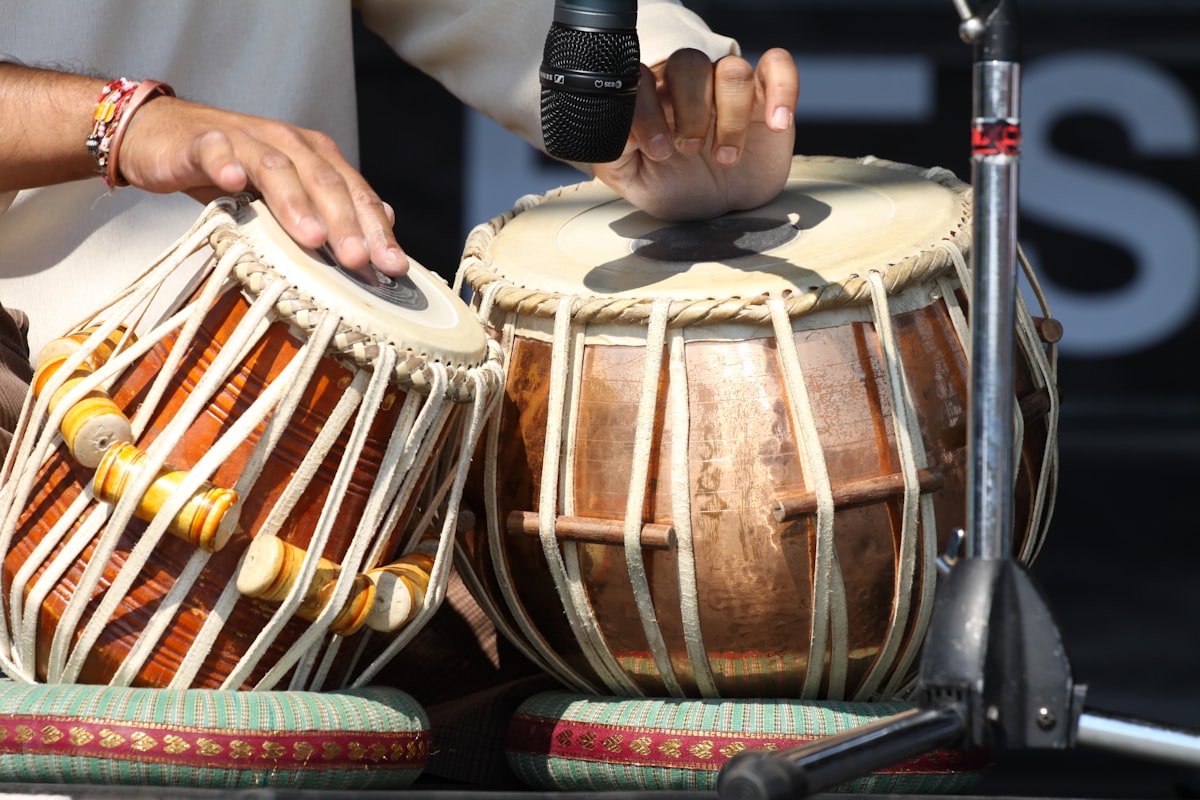The African music industry in the 2000s was a time of growth, innovation, and challenges. African artists were making waves both within the continent and on the global stage, with their unique sounds and infectious rhythms. This article will delve into the various aspects of the African music industry in the 2000s, exploring the hits that defined the new millennium, the rise of Afrobeats as a genre, the impact of technology on African music, the artists who dominated the charts, the evolution of music videos, the influence of Western music, the role of African DJs, and ultimately, the lasting legacy of African tracks in this era.
Key Takeaways
- The African music industry experienced significant growth in the 2000s, with the rise of new genres and the emergence of talented artists.
- African hits like “P-Square’s “Do Me” and “D’banj’s “Oliver Twist” defined the new millennium and showcased the diversity of African music.
- The rise of Afrobeats in the late 2000s brought a fusion of African rhythms and Western influences, creating a unique sound that gained global recognition.
- Technology played a significant role in the growth of African music, with the rise of digital platforms and social media allowing artists to reach wider audiences.
- African artists like Wizkid, Davido, and Tiwa Savage dominated the charts in the 2000s, showcasing the talent and creativity of the African music industry.
The African Music Industry in the 2000s
In the early 2000s, the African music industry was still finding its footing. While there were established artists who had gained recognition both within Africa and internationally, there were also numerous challenges faced by African artists and the industry as a whole. One major challenge was the lack of infrastructure and resources to support artists in terms of production, distribution, and promotion. Many artists struggled to get their music heard beyond their local communities.
Additionally, piracy was rampant in Africa during this time, making it difficult for artists to monetize their work. The lack of copyright protection and enforcement meant that artists often did not receive proper compensation for their music. This further hindered their ability to invest in their careers and produce high-quality content.
African Hits That Defined the New Millennium
Despite these challenges, there were several African hits that made waves in the early 2000s. These songs not only showcased the talent and creativity of African artists but also introduced African music to a wider audience. Songs like “Olufunmi” by Styl-Plus from Nigeria, “Malaika” by Miriam Makeba from South Africa, and “Zouk la sé sèl médikaman nou ni” by Kassav’ from Martinique became anthems that transcended borders and resonated with people across the world.
What made these songs stand out was their unique elements. They incorporated traditional African rhythms and melodies with modern production techniques, creating a fusion that was both familiar and fresh. The lyrics often told stories of love, joy, and resilience, connecting with listeners on an emotional level. These hits paved the way for the rise of African music in the global music scene.
The Rise of Afrobeats
In the mid-2000s, Afrobeats emerged as a genre that would dominate the African music industry. Afrobeats is a fusion of African rhythms, primarily from Nigeria and Ghana, with Western influences such as hip-hop, R&B, and dancehall. Artists like D’banj, P-Square, and Wizkid popularized this genre with their infectious beats and catchy melodies.
The rise of Afrobeats can be attributed to several factors. One key factor was the increasing accessibility of music production software and equipment. This allowed artists to create high-quality music from their own homes or small studios, bypassing the need for expensive recording studios. The internet also played a crucial role in the spread of Afrobeats, as artists could now share their music online and reach a global audience.
The Impact of Technology on African Music
Technology played a significant role in the growth of the African music industry in the 2000s. The advent of social media platforms like MySpace, Facebook, and later Instagram and Twitter, allowed artists to connect directly with their fans and build a loyal following. Artists could share updates about their music, upcoming shows, and interact with fans in real-time.
Streaming platforms like YouTube and SoundCloud also played a crucial role in exposing African music to a wider audience. Artists could upload their music videos or songs on these platforms and reach millions of viewers around the world. This democratization of music distribution allowed African artists to bypass traditional gatekeepers and gain recognition on their own terms.
African Artists Who Dominated the Charts

Several African artists dominated the charts in the 2000s, solidifying their status as icons in the industry. Artists like 2Baba from Nigeria, Salif Keita from Mali, and Angelique Kidjo from Benin showcased the diversity and richness of African music. Each artist had their unique style and sound, drawing inspiration from their cultural heritage while incorporating modern influences.
2Baba, formerly known as 2face Idibia, was one of the pioneers of Afrobeats and is considered one of the greatest African musicians of all time. His soulful voice and heartfelt lyrics resonated with fans across Africa and beyond. Salif Keita, known as the “Golden Voice of Africa,” blended traditional Malian music with contemporary sounds, creating a unique fusion that captivated audiences worldwide. Angelique Kidjo, a powerhouse vocalist and activist, brought her Beninese roots to the forefront, infusing her music with messages of empowerment and social justice.
The Evolution of African Music Videos
In the 2000s, African music videos underwent a significant evolution. With advancements in technology and access to better production equipment, artists were able to create visually stunning videos that enhanced the storytelling in their songs. Music videos became a crucial tool for artists to showcase their creativity and connect with their audience on a deeper level.
African music videos began to incorporate elements of storytelling, dance, fashion, and cultural symbolism. They showcased the beauty and diversity of Africa, challenging stereotypes and showcasing a more nuanced narrative. Artists like Fally Ipupa from the Democratic Republic of Congo, Mafikizolo from South Africa, and P-Square from Nigeria pushed boundaries with their visually captivating videos that showcased African culture in all its glory.
The Influence of Western Music on African Tracks
The influence of Western music on African tracks in the 2000s was a topic of debate within the industry. Some argued that the fusion of African rhythms with Western influences helped to elevate African music and make it more accessible to a global audience. Others believed that this influence diluted the authenticity of African music and eroded its cultural significance.
While it is true that African artists incorporated elements of Western genres like hip-hop, R&B, and dancehall into their music, they did so in a way that still maintained their unique African identity. The fusion of these genres allowed African artists to create a sound that was both familiar and distinct, appealing to a wide range of listeners.
The Role of African DJs in Spreading the Beat
African DJs played a crucial role in spreading African music across the continent and beyond in the 2000s. DJs like DJ Jimmy Jatt from Nigeria, DJ Black Coffee from South Africa, and DJ Arafat from Ivory Coast were instrumental in promoting African music through their mixes, radio shows, and performances.
These DJs not only played African tracks but also collaborated with artists to create remixes and mashups that introduced African sounds to new audiences. They were tastemakers who had their finger on the pulse of the industry, constantly seeking out new talent and pushing boundaries. Their work helped to bridge the gap between African music and other genres, creating a global appreciation for African sounds.
The Legacy of African Tracks in the 2000s
The African music industry in the 2000s was a time of growth, innovation, and challenges. Despite the obstacles faced by artists and the industry as a whole, African music made significant strides both within Africa and on the global stage. The hits that defined the new millennium showcased the talent and creativity of African artists, while the rise of Afrobeats solidified Africa’s position as a powerhouse in the music industry.
Technology played a crucial role in the growth of the African music industry, allowing artists to connect with fans and reach a wider audience. African artists who dominated the charts in the 2000s showcased the diversity and richness of African music, while music videos evolved into visually stunning works of art. The influence of Western music sparked a debate within the industry, but ultimately helped to elevate African music on a global scale.
African DJs played a vital role in spreading African music across the continent and beyond, while leaving a lasting legacy. The impact of African tracks in the 2000s cannot be overstated. They not only introduced African sounds to new audiences but also challenged stereotypes and showcased the beauty and diversity of Africa. The legacy of African tracks in the 2000s continues to inspire and shape the future of African music.
If you’re a music enthusiast who enjoyed The New Millennium Beat: African Tracks That Defined the 2000s, you might also be interested in exploring the ultimate birthday playlist on MusicCharts24. This curated collection of songs is perfect for celebrating your loved ones in style, with a diverse range of genres and timeless hits. From pop to rock, hip-hop to reggaeton, this playlist has something for everyone. Check it out and make your next birthday party an unforgettable musical experience. (source)
FAQs
What is The New Millennium Beat?
The New Millennium Beat is an article that explores the African tracks that defined the 2000s.
What is the significance of African music in the 2000s?
African music gained global recognition in the 2000s, with many African artists achieving international success and influencing popular music worldwide.
Which African tracks are featured in the article?
The article features a variety of African tracks from different genres, including “Zombie” by Fela Kuti, “Malaika” by Miriam Makeba, “Khona” by Mafikizolo, and “P-Square” by Do Me.
What impact did these tracks have on African music?
These tracks helped to shape the sound of African music in the 2000s and beyond, influencing the development of new genres and styles.
What is the legacy of African music in the 2000s?
The legacy of African music in the 2000s is one of innovation, creativity, and global influence. African artists continue to push boundaries and inspire new generations of musicians around the world.



